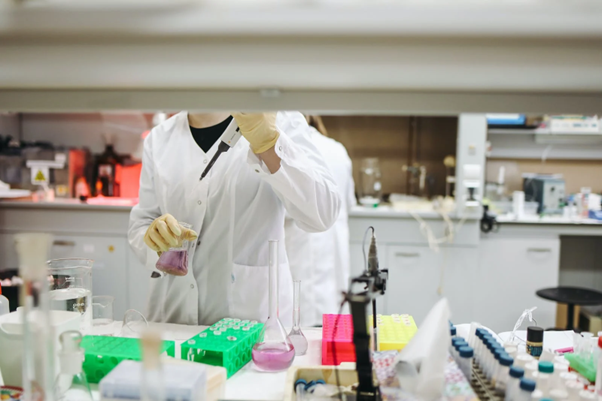
Every quality lab needs to have six essential items in order to function properly. These items are a clean and organized workspace, proper lighting, appropriate storage for chemicals and other materials, safety equipment, ventilation, and a fire extinguisher. A clean and organized workspace is important in a quality lab because it helps to ensure that all experiments are conducted properly and accurately. If the workspace is cluttered or dirty, it can lead to errors in the results of experiments. Here are the six essential items every quality lab needs to have.
1. Sealing films and gloves
To prevent any cross-contamination, it is important to have sealing films and gloves in the lab. The films should be placed on all surfaces that will come into contact with chemicals or other materials. Gloves should be worn when handling any dangerous materials. According to istscientific.com, sealing film and gloves help to create a barrier between the user and the material being handled, which reduces the risk of contamination. If you are handling dangerous chemicals, it is also important to wear gloves that are resistant to them. It’s also important to have a supply of clean gloves on hand in case of any accidents.
2. Proper lighting
If the workspace is not properly lit, it can lead to errors in the results. In order to avoid this, quality labs should have a mix of natural and artificial lighting. Natural lighting is best for general work, while artificial lighting is necessary for tasks that require more precision. Also, the type of lighting should be adjustable so that it can be changed depending on the needs of the task at hand. It’s also important to have a backup lighting system in case of any power outages. While quality labs need to have proper lighting, it’s also important to make sure that the lighting does not create any glare on the work surfaces.
3. Appropriate storage for chemicals and other materials
Quality labs need to have appropriate storage for all of the chemicals and other materials used in experiments. This helps to keep the workspace organized and prevents any cross-contamination. All dangerous chemicals should be stored in sealed containers and labeled clearly. It is also important to have a separate area for storing flammable materials. While most quality labs will have a designated storage area for chemicals, some may also have a fume hood to further protect against any fumes or vapors.
4. Safety equipment
This includes items such as fire extinguishers, eye wash stations, and emergency showers. It is also important to have a first aid kit on hand in case of any accidents. All of the safety equipment should be properly maintained and stored in an easily accessible location. Additionally, all workers in the quality lab should be properly trained on how to use the safety equipment. If possible, there should be a designated safety officer who is responsible for overseeing all of the safety procedures. It’s also important to have a comprehensive safety plan in place that covers all potential hazards.
5. Ventilation
Quality labs need to have proper ventilation in order to prevent any fumes or vapors from accumulating. The ventilation system should be able to filter out any dangerous gases or particles. It is also important to have a backup power source for the ventilation system in case of any power outages. While most quality labs will have a central ventilation system, some may also have a fume hood to further protect against any fumes or vapors. This is especially important if any dangerous chemicals are being used.
6. Temperature control
Maintaining strict temperature control is crucial in any quality lab, as even slight variations can lead to inaccurate results. To ensure optimal results, consider investing in a high-quality temperature-controlled storage system. Also, be sure to have a reliable backup system in place in case of power outages or other unexpected events. It’s also important to have a system in place for monitoring and documenting temperature changes. If you don’t have the necessary expertise on staff, consider working with a specialist to ensure that your temperature control system is up to par.

A quality lab is essential for any business or organization that relies on accurate results. By investing in the right tools and equipment, you can ensure that your quality lab is up to par and able to provide accurate results. It’s also important to have a comprehensive safety plan in place and to train all workers on the proper use of safety equipment. By following these guidelines, you can create a quality lab that meets all of your needs.
